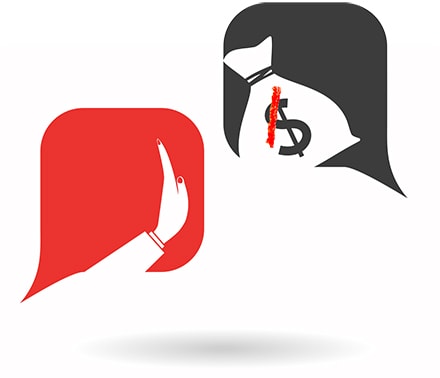Anti-Bribery Legislation in the UAE
 Subsequent to the economic stagnation of 2008, the UAE assumed proactive measures to indict individuals who violated the Federal Penal Code’s anti-bribery legislation. Despite the surfacing of several prominent cases, the regulations, which were enacted in the 1980s, still remain wholly foreign to many businesses operating in the Emirates. This unfamiliarity likely stems in part from the association of corruption with government institutions, not individual companies. This overwhelming lack of awareness has continued even through numerous legislative texts beyond the Federal Penal code, such as the Dubai Penal Code, Human Resources Law, Commercial Companies Law, and Federal Money Laundering Law which have been established to curtail bribery within both private and public sectors. Collectively, these governmental efforts have aided the UAE in maintaining a commendable corruption perception rank of 23 by Transparency International. This article will provide an overview to UAE anti-bribery legislation, assessing federal, state, and international standards.
Subsequent to the economic stagnation of 2008, the UAE assumed proactive measures to indict individuals who violated the Federal Penal Code’s anti-bribery legislation. Despite the surfacing of several prominent cases, the regulations, which were enacted in the 1980s, still remain wholly foreign to many businesses operating in the Emirates. This unfamiliarity likely stems in part from the association of corruption with government institutions, not individual companies. This overwhelming lack of awareness has continued even through numerous legislative texts beyond the Federal Penal code, such as the Dubai Penal Code, Human Resources Law, Commercial Companies Law, and Federal Money Laundering Law which have been established to curtail bribery within both private and public sectors. Collectively, these governmental efforts have aided the UAE in maintaining a commendable corruption perception rank of 23 by Transparency International. This article will provide an overview to UAE anti-bribery legislation, assessing federal, state, and international standards.
The UAE’s Federal Penal Code
Articles 234 through Article 239 of the Federal Penal Code (the “Code”) comprises rules prohibiting bribery for employees working in either private or public sectors. These provisions, which are located under Part Two- Crimes Pertaining to Public Office (Bribery), can be interpreted as the following:
I. Article 234:
Any individual who is a public service employee will be incarcerated if they accept a “gift or privilege of any kind or any promise thereof” for a function transpired during their duty.
II. Article 235:
Branching off the previous act, Article 235 specifies that in an instance where a breach of Article 234 does occur, the public service offender will be imprisoned for a maximum of no more than ten years. It is important to note that an individual can violate Article 234 if they are accepting gestures on behalf of another person. Should an offense be committed in regard to an act of duty, the offender will be punished through detention.
III. Article 236:
If a public official or individual involved with a public service accepts (for himself or another) the advantages listed in Article 234 for an act “not included in his duties” (this condition is what sets Article 236 apart from Article 235), then that person will be subjected to imprisonment for no more than five years. This Article has been amended to include private sector employees and managers in the legal liability scope.
IV. Article 237:
Article 237 details the punishment for individuals who are responsible for extending such gifts or advantages. If an individual is caught presenting an advantage, promise, or gift to an individual “entrusted with a public service” for their duties, the offeror will be confined. The same penalty will apply to any person “who intercedes to influence the briber or the bribed.”
V. Article 238:
Any individual convicted for bribery will be issued a fine comparable in value to that which they have either accepted or requested. This fine shall be no “less than one thousand Dirhams.” Additionally, all accepted gifts will be seized.
VI. Article 239:
Any individual who confesses before a case reaches court that they have either bribed or acted as an intermediary for a bribe will be excused from discipline. The same individual will not be exonerated if the disclosure occurs after judicial proceedings are arranged.
As the facts above demonstrate, the UAE Penal Code bears the capacity to penalize all dimensions fueling a bribery act. Although both GAN Integrity and Transparency International have estimated the UAE’s corruption status to be minute, corruption cases are not unfamiliar to Emirates’ courts. In 2014, a former Deyaar chief executive was sentenced by the Court of Appeal to 10 years imprisonment for a misuse of power that resulted in the defendant earning Dh20 million. The Court held the executive had taken a bribe and in return knowingly accepted bids which were inflated. As a result of this act, the bribe adversely impacted Deyaar between 2004 and 2007.
UAE Bribery Legislation: Beyond the Federal Penal Code
 While the Federal Penal Code provides a backbone to UAE anti-bribery legislation, it is not the only legal text forbidding the act. Emirates such as Dubai and various other Federal decrees have established strict mandates banning bribery practices:
While the Federal Penal Code provides a backbone to UAE anti-bribery legislation, it is not the only legal text forbidding the act. Emirates such as Dubai and various other Federal decrees have established strict mandates banning bribery practices:
- Federal Decree Law Number 11 of 2008
This legislation as amended by Federal Decree Law Number 9 of 2011 and Federal Decree Law Number 17 of 2016, outlines the UAE’s Human Resources Law. Establishing a variety of responsibilities for federal entities, employees, and regulations for workplace health and safety, the Human Resources Law also provides policies surrounding “Gifts & Bribes.” Under Article 70 of the Decree, five stipulations are presented for employees. These comprise:
Article 70(1): The acceptance by an employee of “any gifts except for those of a symbolic or promotional nature that bear the logo and name of the presenting party” is forbidden. Concerning a Federal entity, gifts may be accepted under the condition that a recognized and designated “unit” has handled the collection and distribution of gifts. Further, a process for managing the dispersal of the gifts must be founded and enforced by the entity’s “unit.”
Article 70(2): All gifts presented are required to be distributed under the respective Federal entity’s name, and must pass through the entity’s assigned “unit.”
Article 70(3): Employees are “strictly forbidden to offer, give, request or accept any bribe.”
Article 70(4): In respect to Article 70(3), requesting or accepting a bribe includes administering payment, a service, or offering “commercial or moral value” with the intent of debasing the business of a public employee. The Article then defines a list of prohibited intents comprising the corruption of a business: “a) speed up a process that employees are required to perform as part of their work, b) prevent employees from performing their assignments, c) ask an employee to improperly persuade another employee to complete a transaction or take actions in violation of applicable regulations.”
Article 70(5): Should a violation to any of the previous sections under Article 70 occur, the suspected act of bribery will be investigated. If the investigation reveals that an employee “…has paid, received or asked for a bribe,” that individual will be turned over to judicial authorities.
- Federal Laws Number 8 of 1984:
Federal Law Number 8 of 1984 (the Commercial Companies Law) prohibits acts of bribery in context to financial statements and external UAE company auditors. Article 197 of the Federal law outlines restrictions for public and private joint-stock companies. This article “restricts a company from offering [or guaranteeing] any type of cash loan to the chairman of the company or a member of the board of directors.” Further, in Article 198, public and private joint-stock companies are forbidden to create “any loans or donations within two years of incorporation of the company unless these donations are made by way of customary gifts from the profits of the company.”
- Federal Law Number 4 of 2002:
Federal Law Number 4 of 2002, referred to as the Federal Money Laundering Law denotes in Article 2(1) that participation in any of the following property related acts will constitute an offense of money laundering: “a. The conversion, transfer or deposit of Proceeds, with intent to conceal or disguise the illicit origin of such Proceeds, b. The concealment or disguise of the true nature, source, location, disposition, movement, rights with respect to, or ownership or Proceeds, c. The acquisition, possession or use of such Proceeds.” The Federal Money Laundering Law constitutes Property as a means which can be derived from an act of bribery (Article 2(2))
- The Dubai Penal Code 1970:
Similar to the UAE Federal Penal Code, the Dubai Penal Code comprises provisions on the illegalization of bribery and misuse of public office. Per the 1970 Code, an individual caught either receiving or offering a bribe will be reprimanded. Within the Dubai Penal Code, Article 118 prohibits “the taking of a gratification by a public servant in respect of an official act,” Article 119 forbids “taking a gratification in order, by corrupt or illegal means, to influence a public servant in respect of an official act,” and Article 121 outlaws “the obtaining of any valuable thing by a public servant, without consideration, from a person concerned in any proceeding or business transacted by such public servants.” According to the Penal Code, should an individual violate any of the three articles cited above, punishment via incarceration or fine will ensue. Breach of Articles 118 or 119 will result in either maximum imprisonment for no more than three years or a maximum fine of 5,000 riyals. Violation of Article 121 will result in either maximum one-year imprisonment, or a fine not exceeding 1,000 riyals.
The UAE and the United Nations Convention Against Corruption (UNCAC)
Establishing status as a signatory to the United Nations Convention Against Corruption in 2005, the UAE declared alignment with the United Nation’s (UN) concern surrounding the “seriousness of problems and threats posed by corruption to the stability and security of societies” (Preamble). Upon becoming a Member Party, the UAE agreed to a series of provisions combatting the corrosive effects of corruption. Specifically, pertaining to bribery, Member Parties agree to the importance of focusing on the criminalization of bribery for both the public and private sectors. The Convention contains four articles which articulate regulations on acts of bribery; these include:
Article 12:
Article 12 of the UN Convention Against Corruption addresses measures a state should employ to prevent corruptive practices within their private sector. Article 12.4 calls upon Members such as the UAE, to prohibit “tax deductibility of expenses that constitute bribes” or any other various costs sustained from corrupt behavior.
Article 15:
Article 15 of the Convention outlines the criminalization of bribery for national public officials. Under this provision, the UAE has agreed to establish legislative standards to penalize intentional “…promise[s], offering[s] or giving[s], to a public official, directly or indirectly…for the official himself…or another person or entity.” Article 15(a) stipulates these gestures must be committed with the intent to interject the official’s duties. Similarly, Article 15(b) forbids the act of receiving or accepting the bribes delineated in 15(a). Article 15 concerns itself with both direct and indirect acceptance of a bribe.
 Article 16:
Article 16:
In contrast to the jurisdiction of Article 15, Article 16 strongly encourages the UAE to generate legislative doctrine criminalizing “the promise, offering or giving to a foreign public official or an official of a public international organization…in order that the official act or refrain from acting in the exercise of his or her official duties….” The scope of prohibited acts of bribery under Article 16(1) is targeted at offerings which will influence the handling of international business. The act of acquiring international handouts (either directly for the foreign public official’s use or for another individual) is criminalized in Article 16(2).
Article 21:
While Articles 15 and 16 of the Convention addressed the construction of anti-bribery domestic law for public officials, Article 21 provides suggestions for punishing bribery in the private sector. State Parties are advised to enact laws criminalizing the intentional “…promise, offering or giving, directly or indirectly, of an undue advantage to any person who directs or works, in any capacity, for a private sector entity….” The article highlights private sector bribery relevant to financial, economic, and commercial enterprises. Just as the two previous articles mentioned, the act of “solicitation or acceptance” of the contribution is prescribed as well (Article 21(b)).
For the purpose of this article, the UN Convention Against Corruption was evaluated to illustrate the congruity existing between the UAE Penal Code and binding multilateral treaties. Upon close inspection, one perceives the notable similarity between the 2005 Convention and the UAE’s anti-bribery legislation.
 English
English
 عربي
عربي Русский
Русский 官话
官话 português
português
 Türk
Türk 





















